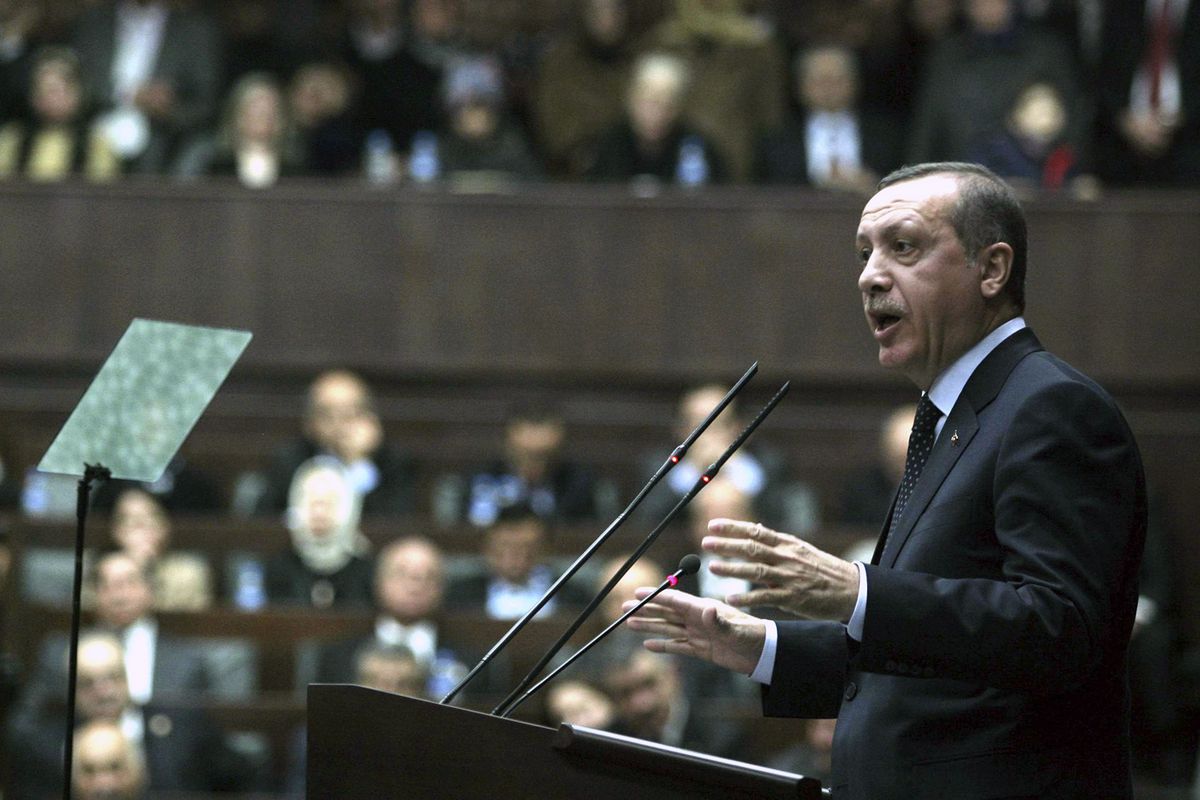Russia urges reforms, but wants to keep Assad
Growing number of nations calls for ouster of regime

BEIRUT – Days after blocking a U.S.-backed peace plan at the U.N., senior Russian officials pushed for reforms Tuesday during an emergency meeting with Syrian President Bashar Assad, promoting a settlement to end the uprising without removing him from power.
Thousands of flag-waving government supporters cheered the Russians in the Syrian capital of Damascus, while to the north, Assad’s forces pounded the opposition city of Homs – underscoring the sharp divisions propelling the country toward civil war.
The violence has led to the most severe international isolation in more than four decades of Assad family rule, with country after country calling home their envoys.
France, Italy, Spain and Belgium pulled their ambassadors from Damascus, as did six Gulf nations, including Saudi Arabia. Germany, whose envoy left the country this month, said he would not be replaced. The moves came a day after the U.S. closed its embassy in Syria and Britain recalled its ambassador.
Turkey, once a strong Assad supporter and now one of his most vocal critics, added its voice to the international condemnation, with Prime Minister Recep Tayyip Erdogan saying his country cannot remain silent about massacres in Syria. He said Turkey would “launch a new initiative with countries that stand by the Syrian people instead of the regime.”
His comments reflect a growing movement by the U.S., Europe and countries in the region to organize a coalition of nations to back Syria’s opposition, though what kind of support remains unclear.
Russian Foreign Minister Sergey Lavrov flew into Damascus on Tuesday, accompanied by his foreign security chief, to try to boost a plan that would keep Assad in power, even though many prominent members of the opposition reject that entirely.
“It’s clear that efforts to stop the violence should be accompanied by the beginning of dialogue among the political forces,” Lavrov said, according to the Russian news agency ITAR-Tass. “Today we received confirmation of the readiness of the president of Syria for this work.”
The visit was also a sign that Moscow wanted to get a firsthand assessment of the situation on the ground in Syria – and the raucous welcome the diplomats received from thousands of regime supporters appeared aimed at showing that Assad’s grip is firm, at least in Damascus.
Syria has been a key Russian ally since Soviet times, and Moscow remains a major arms supplier to Damascus even as Assad unleashes his forces to crush not only peaceful protesters, but army defectors who are fighting the regime.